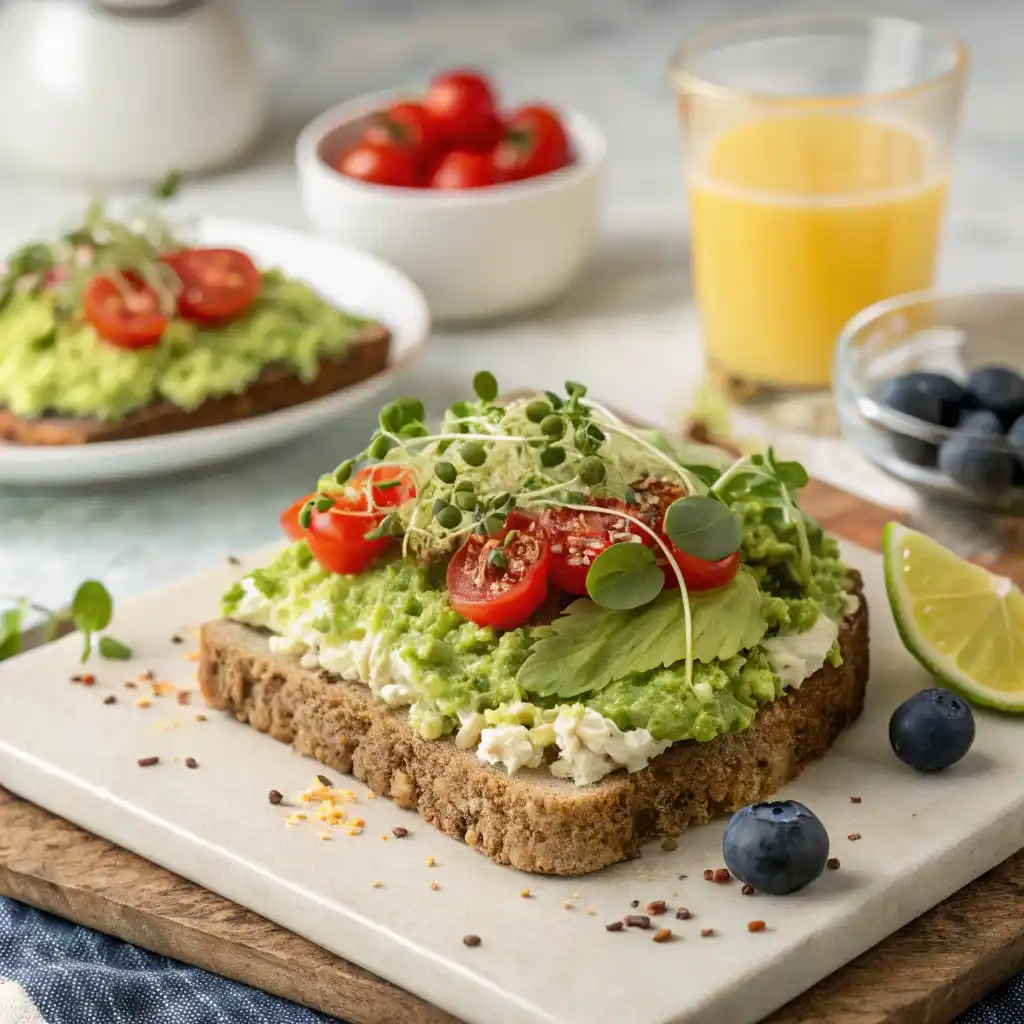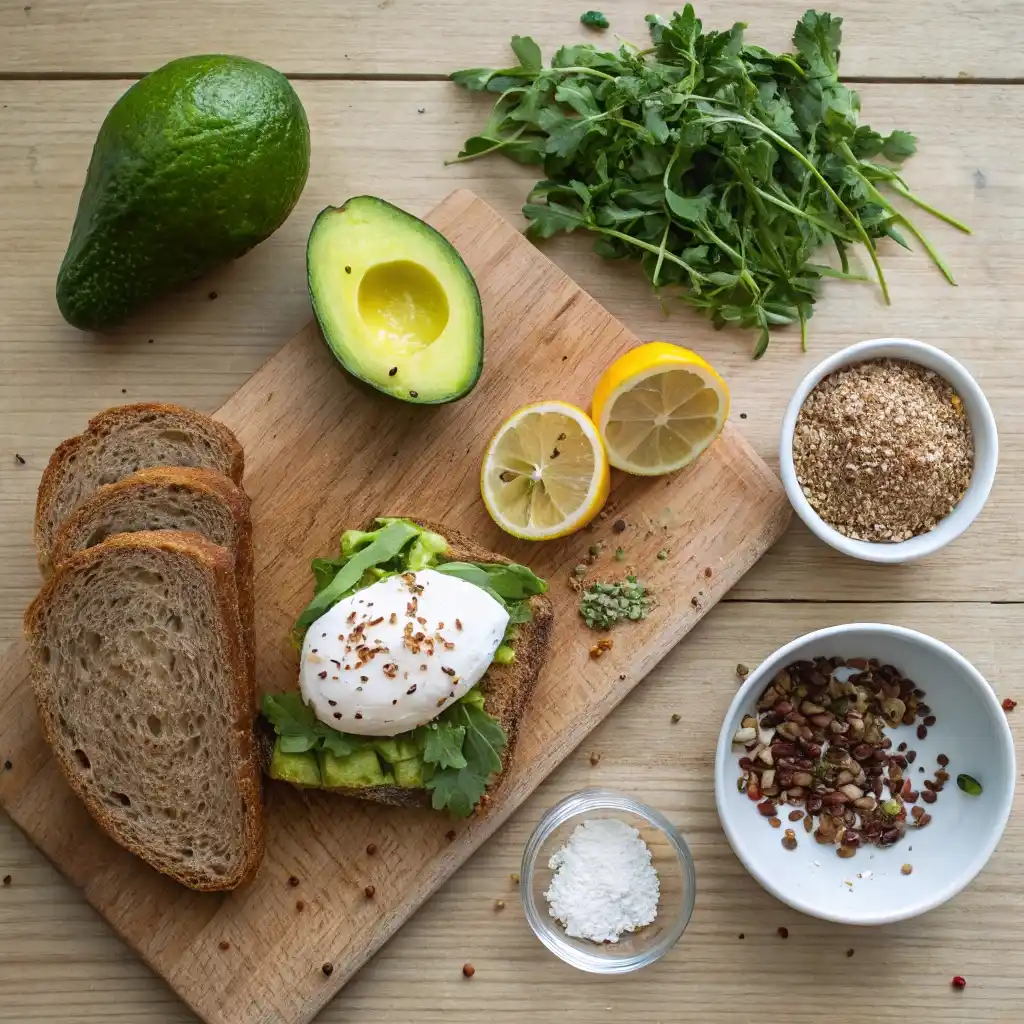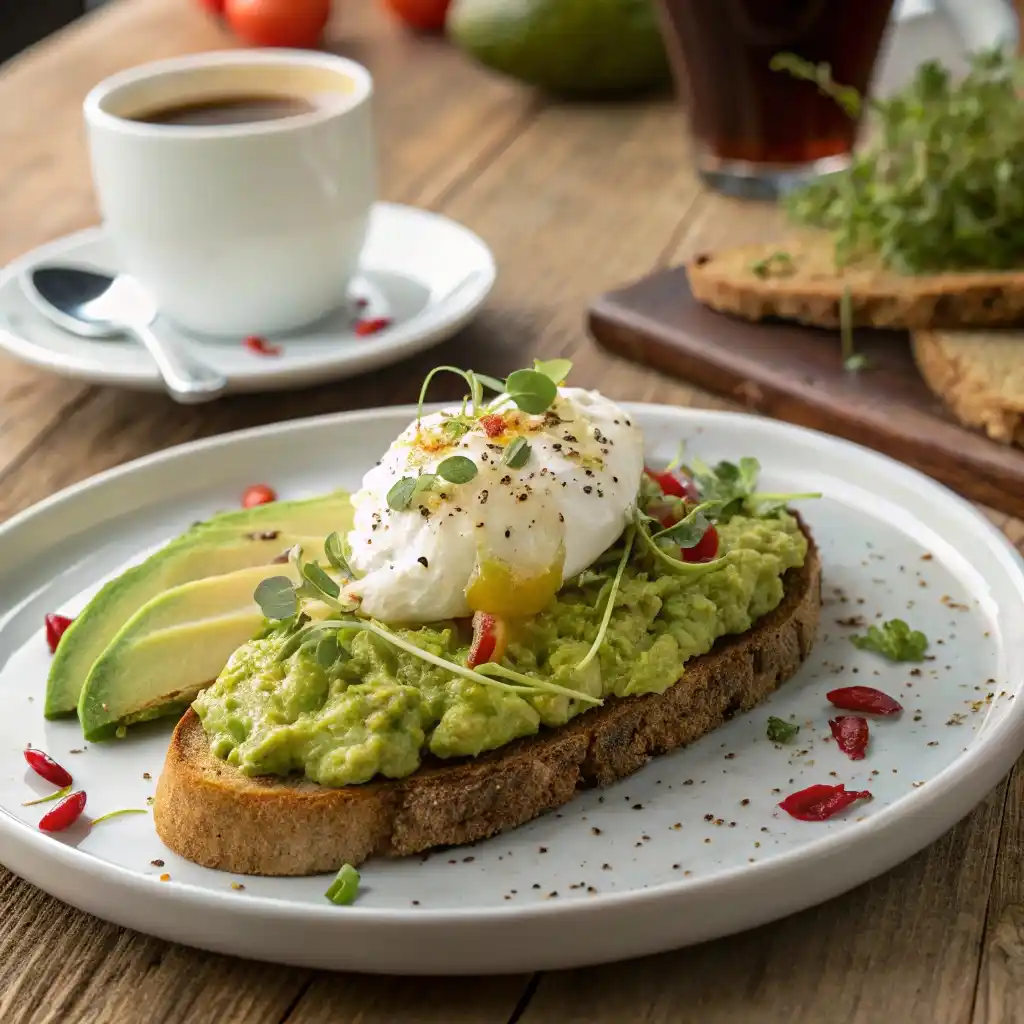Exploring the Popularity of Avocado Toasts
Avocado toast has transcended its humble beginnings to become one of the most iconic and beloved breakfast dishes of the modern era. In addition, with its creamy texture, vibrant green hue, and undeniable nutritional appeal, this simple dish has captured the hearts of foodies and wellness enthusiasts alike. However, when a food becomes this popular, it inevitably inspires creativity—not just in how it’s prepared, but also in how it’s talked about. For example, from playful nicknames like “avo-toast” to more elaborate slang terms, trendy foods like avocado toast often take on a language of their own. This, in turn, raises an interesting question: Why do trendy foods inspire their own slang?
The answer lies in a mix of social media, cultural identity, and the human desire to connect through shared experiences. Thus, avocado toast’s journey into the world of slang offers a fascinating glimpse into how language evolves alongside modern food culture.

The Rise of Avocado Toast: From Breakfast to Cultural Phenomenon
Avocado toast’s story begins long before it became a staple on brunch menus around the globe. Historically, avocados have been a dietary favorite in regions like Central and South America, where they were celebrated for their rich flavor and nutritional value. However, it wasn’t until the late 20th century that avocados began gaining mainstream appeal in places like the United States and Australia.
By the 1990s, California cuisine embraced avocados as a symbol of health-conscious eating, and chefs began experimenting with ways to incorporate them into simple, approachable dishes. Enter avocado toast: a dish that paired the creamy fruit with crusty bread, offering both taste and texture in one bite.
The true rise of the recipe as a cultural icon came in the 2010s, fueled by several factors:
- Health Trends: Avocado’s status as a superfood made it a popular choice for those seeking nutrient-dense meals.
- Instagram Appeal: The dish’s vibrant green color and endless customization options made it an instant hit on social media.
- Cafe Culture: Cafes around the world began elevating the dish with gourmet toppings like poached eggs, smoked salmon, and microgreens.
As avocado toast grew in popularity, it also became a cultural symbol—celebrated for its health benefits but also jokingly critiqued for its association with millennial spending habits. This duality only added to its allure, making it a prime candidate for playful slang and internet humor.
The Role of Social Media in Food Slang
In today’s digital age, social media platforms like Instagram, TikTok, and Twitter play a significant role in shaping how we talk about food. These platforms not only showcase food trends but also create spaces where new slang can emerge and spread like wildfire.
How Social Media Creates Food Slang
- Visual Appeal: Foods that photograph well, like avocado toast, are shared widely, creating a sense of cultural ubiquity.
- Hashtags and Trends: Hashtags such as #AvocadoToast and #FoodieFuel allow users to discover and contribute to conversations about popular dishes.
- Humor and Memes: Playful nicknames and slang terms, such as “green gold” or “avo-licious,” often arise from meme culture, where humor drives engagement.
- Influencer Impact: Food influencers and celebrities popularize slang by introducing it to their followers, who then adopt and share the terms.
Examples of Avocado Toast Slang
- “Avo-toast”: A simple, catchy abbreviation that’s easy to say and remember.
- “Green Gold”: A nod to the dish’s vibrant color and premium status.
- “Bread Bliss”: A playful term highlighting the joy of pairing bread with creamy avocado.
- “The Millennial Spread”: A humorous take on the dish’s association with millennial culture.
Social media’s ability to amplify trends means that slang terms like these quickly become part of the collective lexicon, cementing avocado toast’s place not just on breakfast plates but in popular culture.
Popular Slang for Avocado Toast
Avocado toast’s rise to cultural prominence has sparked creative slang terms, reflecting its popularity in modern food culture. In particular, these playful nicknames, often coined on social media, highlight the dish’s appeal to younger, trend-savvy audiences. As a result, they enhance its relatability and engagement in digital spaces.
Common Slang Terms
- “Avo-toast”
- A straightforward abbreviation, widely used in both casual conversation and online posts.
- Example: “Starting my day with avo-toast and coffee!”
- “Green Gold”
- Refers to the perceived luxury and vibrant color of avocado toast.
- Example: “Brunch isn’t complete without a slice of green gold.”
- “The Millennial Spread”
- A tongue-in-cheek nod to avocado toast’s association with millennial culture.
- Example: “Saving money this month—no Millennial Spread for me.”
- “Bread Bliss”
- Highlights the comforting and satisfying nature of avocado on toast.
- Example: “This bread bliss is everything I needed today.”
- “Guac on a Slab”
- A humorous take comparing avocado toast to guacamole on bread.
- Example: “Who’s up for some guac on a slab this weekend?”
These terms demonstrate how food trends often inspire creative expressions that are as fun to use as they are to eat.
Why Millennials Are Linked to Avocado Toast
Avocado toast and millennials have become nearly synonymous in modern culture, thanks in part to generational preferences and social media trends. But why is this particular dish so strongly tied to millennials?
Key Reasons
- Health-Conscious Lifestyles
Millennials prioritize wellness, and avocado toast fits seamlessly into this narrative with its nutrient-dense ingredients and balance of healthy fats and fiber. - Cafe Culture and Brunch Trends
The rise of artisan cafes and brunch culture during the millennial era turned dishes like avocado toast into a lifestyle statement. - Social Media Influence
Millennials were early adopters of platforms like Instagram, where the visual appeal of avocado toast made it a viral hit. The aesthetic of “avo-toast” perfectly aligned with the curated, picture-perfect vibe of millennial feeds. - Slang and Humor
Millennials’ love for memes and ironic humor contributed to the creation of playful terms like “Millennial Spread,” which highlight the dish’s cultural significance with a wink.
Cultural Perceptions
While avocado toast is celebrated as a symbol of health and creativity, it has also been the subject of jokes and critiques, often linked to millennial spending habits. This duality has only strengthened its place in pop culture as a dish that defines a generation.
How Slang Reflects Food Trends
Slang evolves alongside food trends, reflecting cultural attitudes and preferences. For instance, from playful nicknames to viral hashtags, the language we use around food reveals how we perceive and engage with it. Consequently, slang helps shape our connection to modern food culture.
The Evolution of Food Language
- Trendy Foods Get Nicknames
- Foods that capture public attention, like avocado toast, often inspire slang to make them more accessible, relatable, or humorous.
- Social Media Amplification
- Platforms like TikTok and Instagram accelerate the spread of food slang, turning niche terms into mainstream vocabulary.
- Cultural Identity and Humor
- Slang terms often reflect cultural identity, blending humor with the way people connect over food. For example, “green gold” captures avocado toast’s premium appeal in a playful way.
Why Food Trends Inspire Slang
- Relatability: Slang makes trendy foods feel approachable and fun.
- Community Building: Using shared terms fosters a sense of belonging among fans of a particular food trend.
- Cultural Commentary: Slang often serves as a lighthearted critique or celebration of a trend’s popularity.

Examples of Food Slang
- “Rainbow Bagels”: Brightly colored bagels that inspired viral nicknames like “bagel rainbows.”
- “Charcutie Board”: A playful spin on charcuterie boards, especially smaller or creative versions.
- “Frankenfoods”: Slang for over-the-top, hybrid food creations.
The slang surrounding avocado toast showcases how language evolves with culture, blending humor, creativity, and shared experiences.
8 Creative Names for Avocado Toasts
Avocado toast has inspired a slew of unique and quirky names, reflecting its popularity and versatility. These names often capture the playful spirit of the dish and its connection to modern food culture.
1. Green Gold
A nod to the vibrant green color and premium status of avocados.
2. Avo-Goodness
Emphasizing the wholesome and healthy appeal of avocado toast.
3. Millennial Spread
A humorous reference to avocado toast’s association with millennials.
4. Guac Slab
A playful comparison to guacamole on bread.
5. Toast with the Most
Highlighting the endless possibilities of toppings and combinations.
6. Breakfast Bliss
A creative name that captures the joy of starting the day with avocado toast.
7. Zen Toast
Alluding to the calm, balanced energy of a healthy breakfast.
8. Brunch Icon
Recognizing avocado toast as a staple of modern brunch culture.
These names are fun and relatable, adding personality to a beloved dish while making it even more shareable on social media.
Avocado Toast in Memes and Pop Culture
Avocado toast has become a symbol of millennial culture, cementing its iconic status in memes, advertisements, and pop culture references. Moreover, its blend of humor, accessibility, and visual appeal has made it a favorite subject for lighthearted commentary. As a result, it continues to capture the public’s attention, often representing both trends and playful cultural critiques. Thus, avocado toast has secured its place in modern food discussions.
Avocado Toasts Memes
- Millennial Money Memes: Jokes about how avocado toast is the reason millennials can’t afford homes, often paired with humorous captions like, “Why buy a house when you can have $15 toast?”
- Health vs. Indulgence: Memes contrasting avocado toast with indulgent breakfast options, humorously showing avocado toast as the “responsible choice.”
- Avocado Toast as Art: Images of elaborately garnished avocado toast labeled as “modern masterpieces” or “too pretty to eat.”
Pop Culture References
- TV Shows and Movies: Avocado toast often appears as shorthand for a character’s trendy or health-conscious lifestyle.
- Advertisements: Brands use avocado toast to appeal to younger, health-conscious audiences, often tying it to themes of wellness and creativity.
Cultural Variations of Avocado Toasts Slang
The way people refer to avocado toast varies by region, reflecting local languages, humor, and culinary traditions. These cultural differences add a layer of charm and diversity to how the dish is celebrated worldwide.
1. Australia: “Smashed Avo”
In Australia, “smashed avo” is a popular term that reflects the country’s relaxed, straightforward approach to language and food.
2. UK: “Posh Toast”
In the UK, avocado toast is sometimes referred to as “posh toast,” highlighting its association with upscale cafes and urban brunch culture.
3. USA: “Avo-Licious”
American slang often leans into playful and catchy terms, with “avo-licious” capturing the dish’s indulgent yet healthy vibe.
4. Latin America: “Tostada de Aguacate”
In Spanish-speaking countries, avocado toast retains its straightforward name, emphasizing its traditional roots and simplicity.
5. Japan: “Avocado Sando”
In Japan, avocado toast has inspired adaptations like sandwiches, leading to the term “avocado sando,” blending Western and Japanese influences.
6. France: “Pain Vert” (Green Bread)
French slang sometimes romanticizes avocado toast as “pain vert,” reflecting its elegant and colorful presentation.
Regional differences in slang not only highlight avocado toast’s global reach but also show how cultural nuances shape the way we talk about food.
The Impact of Slang on Food Marketing
Slang has become a powerful tool in food marketing, especially for trendy dishes like avocado toast. Creative and relatable language helps brands and businesses connect with audiences, particularly younger generations who value humor, authenticity, and a sense of community in their dining experiences.
How Slang Enhances Avocado Toast’s Appeal
- Increases Shareability
- Catchy terms like “green gold” or “avo-toast” are easy to remember and use, making them perfect for social media posts and hashtags. This boosts the dish’s visibility and encourages more people to share their own avocado toast creations.
- Establishes Cultural Relevance
- Slang helps avocado toast stay relevant in a fast-changing food culture. By adopting modern language, brands show they understand and resonate with current trends.
- Humanizes Branding
- Playful terms create a friendly and approachable image for businesses. A cafe advertising “Millennial Spread Mondays” feels more relatable than one simply listing avocado toast on the menu.
- Drives Engagement
- Consumers are more likely to engage with content that feels fun and conversational. Posts using slang or memes generate higher likes, shares, and comments.
Examples in Food Marketing
- Restaurant Menus: Using creative names like “Zen Toast” or “Avocado Bliss” adds personality to dishes, making them more memorable.
- Social Media Campaigns: Hashtags like #AvocadoLife or #ToastGoals help build a community around the dish.
- Collaborations and Merchandising: Brands create slang-inspired merchandise, such as shirts with slogans like “Pass the Avo” or mugs labeled “Green Gold Fuel.”
Slang transforms avocado toast from just another dish into a cultural experience, driving both its popularity and profitability.
FAQs About Avocado Toasts Slang
Slang terms for avocado toast have sparked curiosity and conversations. Here are answers to some of the most common questions:
1. What are the most popular slang terms for avocado toast?
- “Avo-toast”: A shortened, catchy version of the dish’s name.
- “Green Gold”: Highlights the premium status and vibrant color of avocados.
- “Millennial Spread”: A humorous nod to the dish’s association with millennial culture.
- “Guac Slab”: A playful comparison to guacamole on bread.
2. Where did the slang terms for avocado toasts originate?
Most slang terms were popularized through social media platforms like Instagram and TikTok. They often arise organically as users create humorous or creative nicknames to share their meals.
3. Why do trendy foods like avocado toasts get slang terms?
Slang terms make trendy foods feel more relatable and culturally relevant. They reflect humor, creativity, and community, which are key elements of modern food culture.
4. Do slang terms influence how people perceive the iconic meal?
Yes! Slang terms can shape perceptions by adding a layer of fun and exclusivity. For example, “green gold” emphasizes its value, while “Millennial Spread” associates it with a specific lifestyle.
5. Can slang terms help businesses market avocado toasts?
Absolutely. Creative language can make menus, advertisements, and social media campaigns more engaging, helping businesses stand out in a competitive market.
By understanding and embracing avocado toast slang, individuals and businesses alike can participate in the playful, community-driven culture surrounding this iconic dish.
Avocado Toasts Beyond the Slang
The meal has earned its place in modern culinary culture as much more than just a trendy dish with catchy slang terms. Beneath the fun names like “green gold” or “Millennial Spread,” avocado toast remains a versatile, nutrient-dense meal that resonates with health-conscious individuals and food enthusiasts alike. Its enduring popularity is rooted in a balance of simplicity, adaptability, and a focus on wellness.
Versatility at Its Core
Avocado toast’s strength lies in its ability to be customized for any palate or dietary preference. Whether you’re aiming for a savory or sweet dish, its foundation of creamy avocado on toasted bread acts as a blank canvas for countless toppings and variations:
- Savory Options: Add poached eggs, smoked salmon, or roasted vegetables for a protein-packed meal.
- Sweet Twists: Drizzle with honey and top with fresh fruit like strawberries or pomegranate seeds for a dessert-inspired take.
- Global Influences: Incorporate ingredients like za’atar, miso, or spicy salsa to infuse the dish with international flavors.
Nutritional Powerhouse
The pairing isn’t just delicious—it’s also packed with nutrients that contribute to a balanced diet:
- Healthy Fats: Avocados provide heart-healthy monounsaturated fats that support brain and cardiovascular health.
- Fiber: Both the avocado and whole-grain bread offer ample fiber, aiding digestion and promoting satiety.
- Vitamins and Minerals: Avocados are rich in potassium, vitamin E, and folate, making them a nutrient-dense choice for any meal.
This combination of flavor, flexibility, and nutrition ensures that avocado toast remains a favorite for both casual eaters and food connoisseurs.
Conclusion
Avocado toast is a testament to the evolving nature of food culture. As a result, its journey from a humble dish to a global phenomenon reflects shifts in dietary trends, aesthetic appeal, and social media-driven food conversations. Moreover, the playful slang terms that surround the iconic dish-like “avo-toast” and “green gold”-add a layer of humor and personality. Consequently, these terms make it more relatable and engaging to a wide audience. Ultimately, avocado toast has become both a cultural symbol and a culinary favorite.
However, beyond the memes and hashtags, the dish endures because it delivers substance: a versatile, nutritious, and satisfying meal that appeals to diverse tastes. Its success highlights the power of combining quality ingredients with creative expression, showing how food can be both meaningful and fun.
As food culture continues to evolve, the iconic serves as a reminder that even the simplest dishes can inspire connection, innovation, and a little bit of linguistic flair. So whether you call it “Zen Toast” or simply a great breakfast, avocado toast is here to stay—slang and all.
You May also be Interested in:

